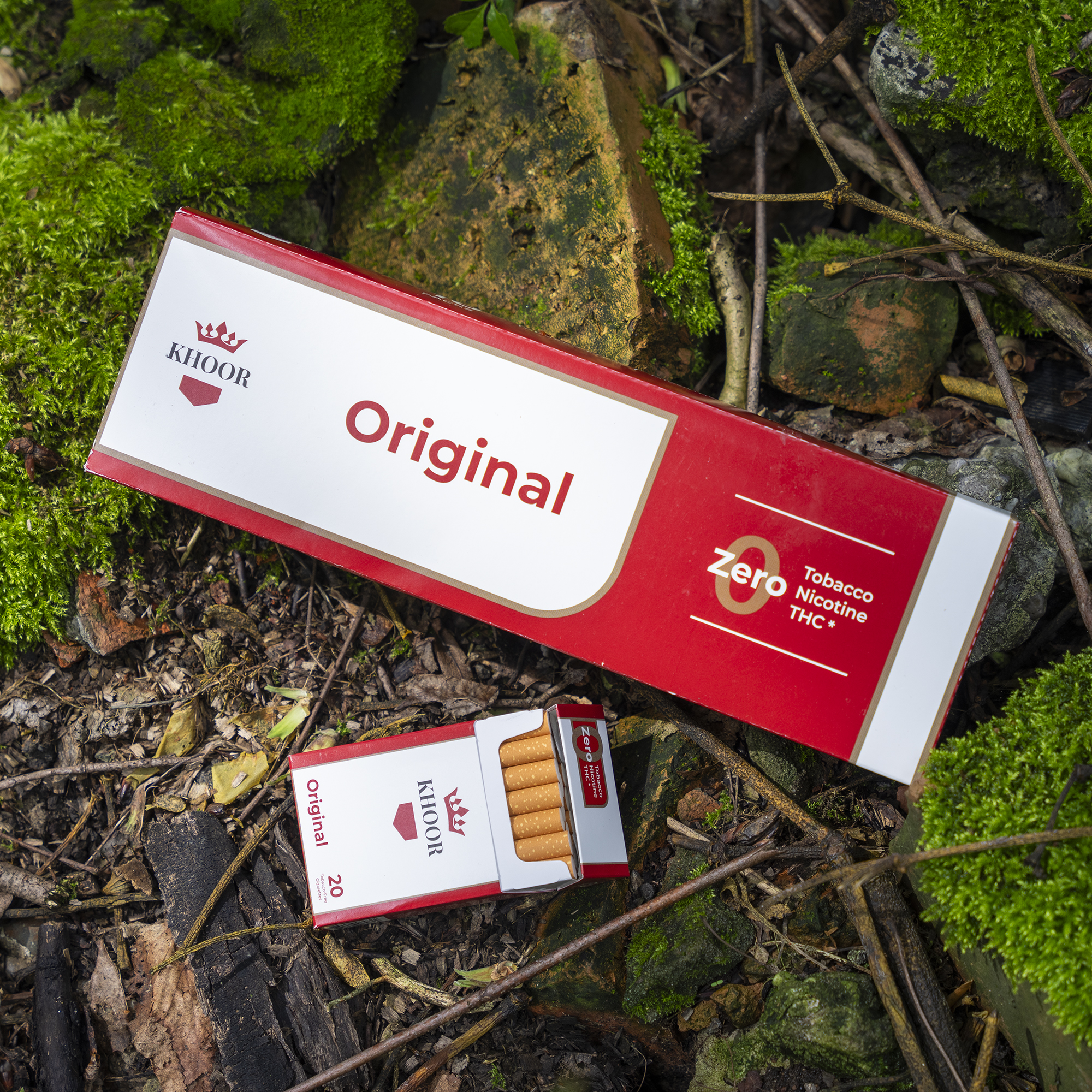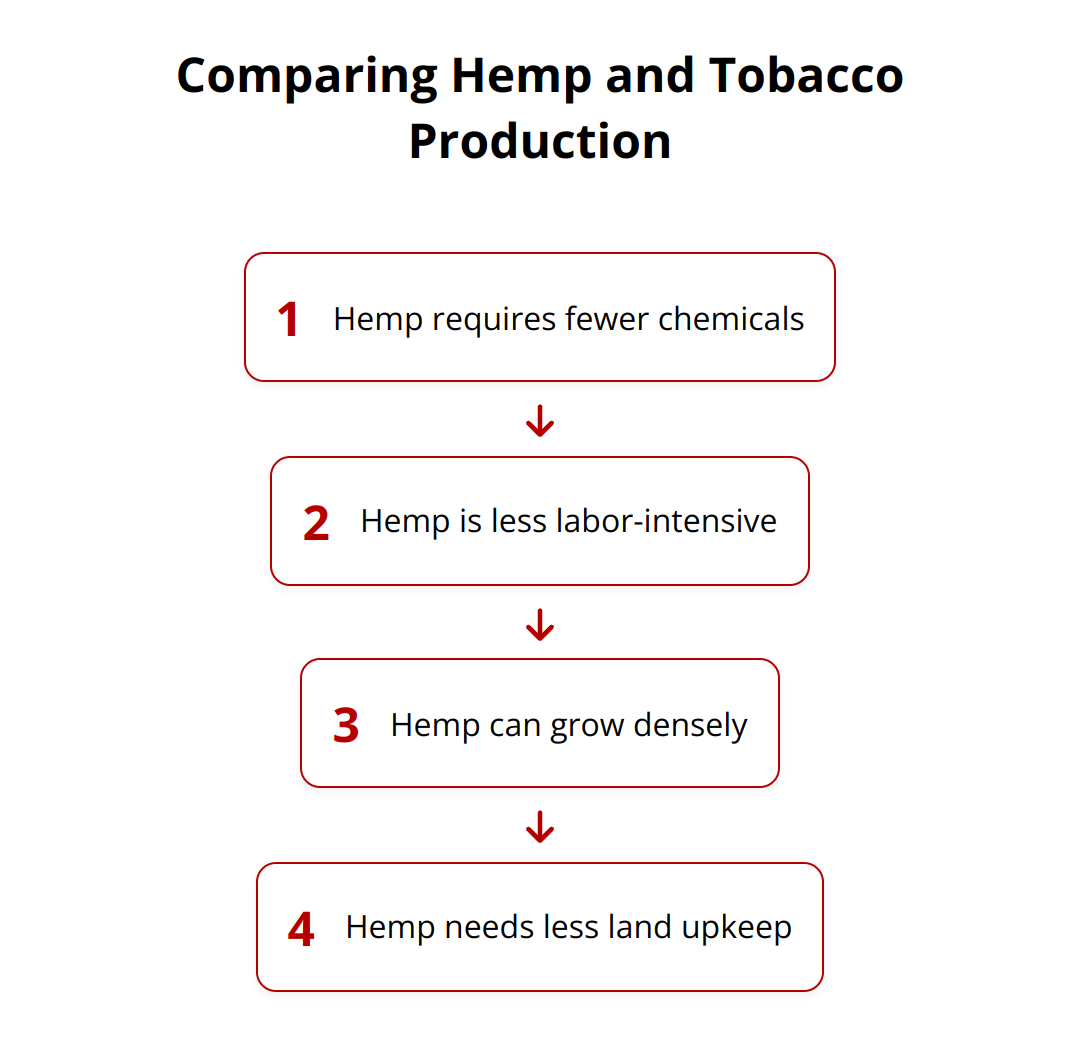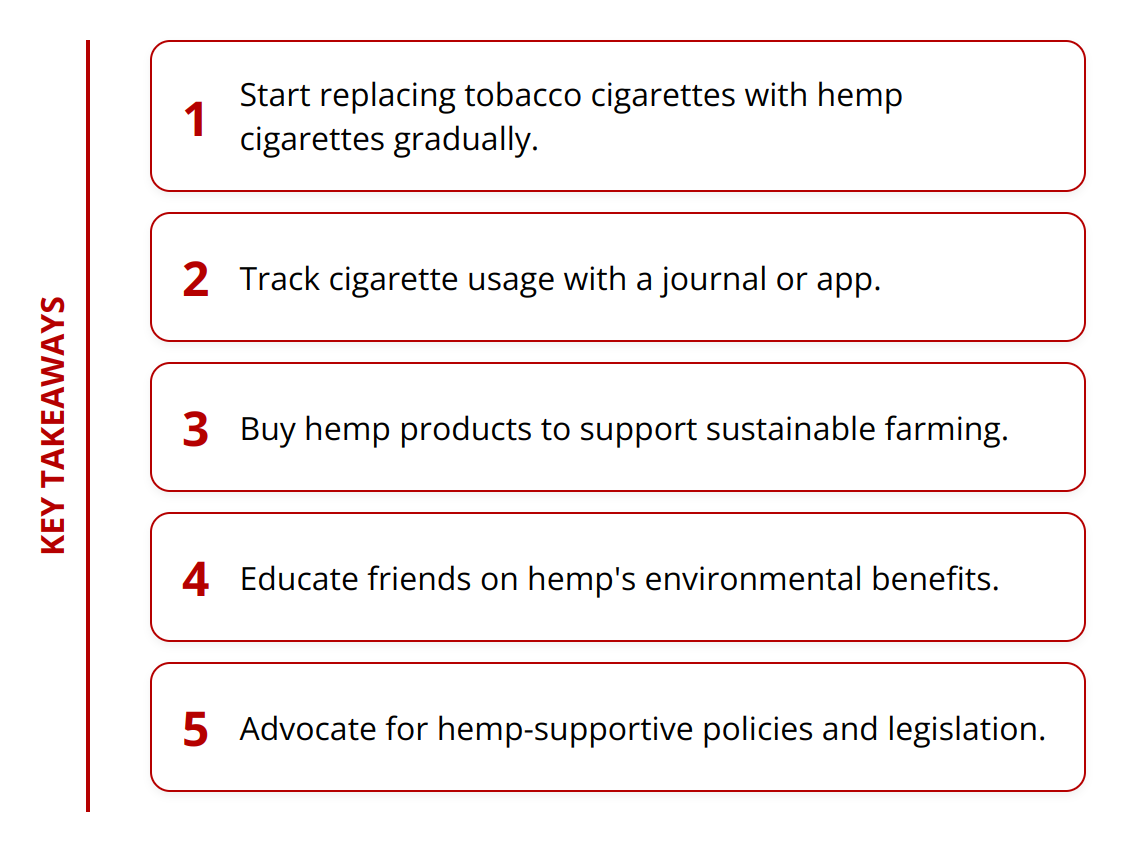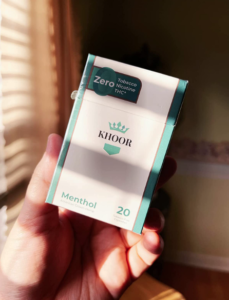
Herbal Smoking Wellness: All You Need to Know
Explore the benefits and tips of herbal smoking wellness with information on health impacts, botanical choices, and DIY blends.

Hemp vs. tobacco have vastly different impacts on health, the environment, and the economy.
We at KHOOR are committed to providing insights into why hemp is a superior choice. Stay with us as we break down the benefits in these key areas.
Hemp is emerging as a healthier alternative to tobacco, and it’s about time we break down the health-related advantages.
First and foremost, hemp has a lower risk of addiction compared to tobacco. This is significant because nicotine in tobacco is highly addictive, making it tough for smokers to quit. According to the Journal of the American Medical Association, about 70% of smokers wish to quit, but only 7% succeed in any given year due to the addictive nature of nicotine. Hemp, on the other hand, contains CBD, which is non-addictive and can even help reduce cravings for more harmful substances.
Hemp cigarettes also contain fewer harmful chemicals. Traditional tobacco cigarettes have over 7,000 chemicals, including 70 known carcinogens as reported by the American Lung Association. In contrast, hemp doesn’t have these toxic additives. Studies have found that while some harmful substances are present, their levels are significantly lower compared to tobacco, reducing the risk of cancer and other serious health issues.
Another major advantage is the therapeutic benefits of hemp. Hemp’s CBD content has been linked to a variety of health benefits, such as reducing anxiety, alleviating pain, and improving sleep quality. A 2019 study published in The Permanente Journal found that CBD could significantly reduce anxiety and improve sleep in 79.2% of patients within the first month.

Users often report feeling more relaxed and less anxious, making hemp a more calming alternative to tobacco.
Practical Tips for Switching to Hemp:
For those looking for more insights, understanding the benefits of tobacco-free cigarettes can provide additional information on making the switch.

With reduced risks and added therapeutic benefits, hemp cigarettes offer a compelling reason to leave tobacco behind.
The first major advantage of hemp over tobacco is its sustainable farming practices. Hemp requires fewer pesticides and herbicides than tobacco, reducing the chemical load on the environment. According to the Rodale Institute, hemp cultivation also uses 50% less water than tobacco, which is significant given water scarcity issues in many regions.
Lower environmental pollution is another key benefit. Tobacco farming results in significant deforestation and soil degradation. A report by the World Health Organization found that tobacco farming results in the annual loss of 200,000 hectares of forest. Hemp, on the other hand, can grow densely, reducing the need for large tracts of land, and it can even be cultivated on less fertile soils.
The soil health benefits of growing hemp are substantial. Hemp has a deep root system that helps to aerate the soil and prevent erosion. According to a study by the University of Kansas, hemp can also remove toxins from the soil, making it an ideal crop for phytoremediation. This means hemp not only enhances soil quality but also helps in restoring contaminated lands.

For those interested in learning more about the journey of hemp legalization and how it has affected its cultivation, check out this detailed history of hemp in the United States.
Practical Tips for Supporting Hemp Cultivation:

The environmental benefits of switching from tobacco to hemp are clear. By supporting sustainable farming and reducing pollution, hemp can play a vital role in creating a healthier planet.
Economic Factors
Switching from tobacco to hemp has significant economic implications that benefit both producers and consumers. Here’s a detailed look at how hemp compares to tobacco in terms of production costs, market demand, and potential economic growth.
Cost of Production
Hemp production can be notably more cost-effective than tobacco. According to the National Institute of Food and Agriculture, hemp is less labor-intensive and requires fewer chemicals, leading to reduced operational costs. Moreover, hemp plants can grow densely, needing less land upkeep, which further cuts down on expenses.
Market Demand Trends
The market demand for hemp products is on the rise, driven by its versatile applications and growing acceptance. According to Grand View Research, the global industrial hemp market size was valued at $4.71 billion in 2019 and is expected to grow at a compound annual growth rate (CAGR) of 15.8% from 2020 to 2027.
Potential Economic Growth
Hemp industries are poised for substantial economic growth. As regulations around hemp become more favorable, entrepreneurs and farmers are increasingly investing in hemp production. The shift adds diversity to agriculture and opens new revenue streams, particularly in rural areas.

For both small-scale farmers and large agricultural operations, hemp offers an economical and sustainable alternative to tobacco. By focusing on the cost-effective and market-driven aspects of hemp production, stakeholders can unlock significant economic benefits.
In summary, hemp stands out as a healthier, more sustainable, and economically beneficial alternative to tobacco.

Health Benefits:
Environmental Benefits:
Economic Benefits:
Switching to healthier alternatives like hemp can lead to better health outcomes, support sustainable farming, and boost local economies.
For those seeking a premium, tobacco-free smoking experience, KHOOR offers all-natural herbal cigarettes in flavors like Original, Menthol, Vanilla, and Berry Blue. Try the 4-pack flavor sampler and benefit from free shipping and scheduled deliveries.
Explore more about hemp benefits to make an informed choice for a healthier future.

Explore the benefits and tips of herbal smoking wellness with information on health impacts, botanical choices, and DIY blends.

Explore how KHOOR supports nicotine replacement with herbal cigarettes, success rates, and user stories for a healthier, smoke-free life.

Explore the benefits of quitting tobacco & nicotine with healthy alternatives. Improve your health and well-being with tips and data-backed advice.

Achieve your quit smoking goals with KHOOR’s supportive approach. Discover benefits, statistics, and practical tips for a healthier life.

Explore practical tips to smoke without nicotine, including product recommendations and real-life statistics to support your healthier lifestyle choices.

Explore tobacco-free alternatives with KHOOR. Learn about options like herbal cigarettes, nicotine pouches, and vaping for a healthier lifestyle.